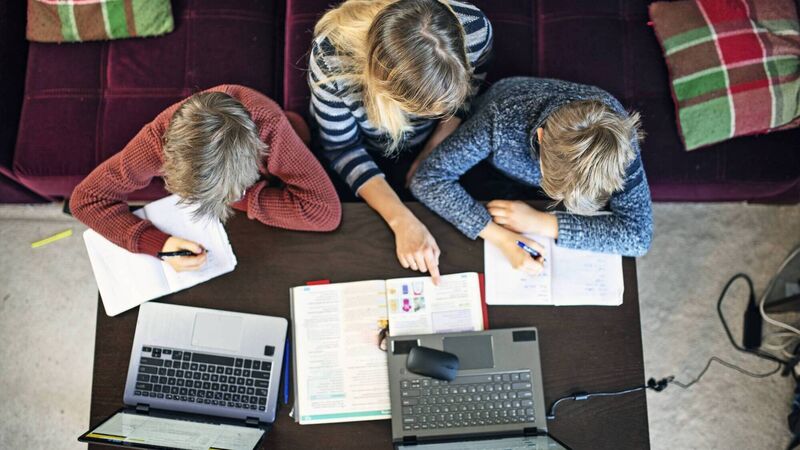More junk food and mental health issues: how Covid-19 has impacted young people

Homeschooling in lockdown was one the issues identified in the survey. Stock image
The Covid-19 pandemic has had a deep impact on the lives of children and young adults, from the challenges of homelearning to a lack of time with friends and a big rise in the number of 22-year-olds reporting depressive symptoms.
The findings are contained in a special survey of Covid-19 experiences for children and young adults participating in the Growing Up in Ireland longitudinal study.










